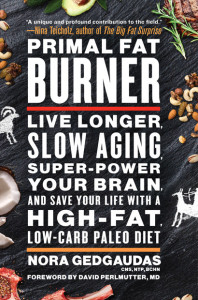As Waistlines Widen, Brains Shrink
The obese and overweight have less neurological tissue, study finds
http://health.usnews.com/articles/health/healthday/2009/08/25/as-waistlines-widen-brains-shrink.html
Posted August 25, 2009
By Amanda Gardner
HealthDay Reporter
TUESDAY, Aug. 25 (HealthDay News) — For every excess pound piled on the body, the brain gets a little bit smaller.
That’s the message from new research that found that elderly individuals who were obese or overweight had significantly less brain tissue than individuals of normal weight.
“The brains of obese people looked 16 years older than their healthy counterparts while [those of] overweight people looked 8 years older,” said UCLA neuroscientist Paul Thompson, senior author of a study published online in Human Brain Mapping.
This story went on to say:
“Clinically obese people had 8 percent less brain tissue, while the overweight had 4 percent less brain tissue compared to normal-weight individuals.
Dr. Jonathan Friedman, an associate professor of surgery and neuroscience and experimental therapeutics at the Texas A&M Health Science Center College of Medicine noted that the causal relationship here is not clear. Theoretically, he said, a smaller brain might mean appetite and weight-control centers of the brain are actually propelling the weight-gain process.”
–UHHHHHHH……(they’re kidding, right?)

Nora’s Comment: Is This REALLY Such A Mystery?????
Now, those of you who have read Primal Body-Primal Mind are smiling and nodding as you read this, understanding what this study is actually saying and why (all the while the scientists in the study continue scratching their heads).
Now gentlemen, with all due respect, think back to your physiology 101 class (the one you were made to forget in order to pass your pharmacology 101 class): How is insulin defined in your textbooks? Allow me to refresh your memories: “Insulin is the fat storage hormone”.
Still confused?
Let’s take a trip down memory lane to the Textbook of Medical Physiology, which states: “All body fat is made from glucose”. (–Not dietary fat, mind you, but G-L-U-C-O-S-E: i.e., sugar)
We getting warmer?
Do you think…just MAYBE that there could be a possible relationship between sugar/starch consumption (something hardly anyone in this culture consumes at all, right?), obesity AND brain glycation, leading to neurodegenerative processes (i.e., shrinking brains)? Alzheimer’s disease, after all, is, put simply, a state of advanced brain neuropathy. What causes neuropathy (think back to the diabetic model)? Glycation. What causes glycation again? …Oh yeah—SUGAR. Where do we get excessive blood sugar? –Sweets, sodas, juices, alcohol, cereal grains, corn, potatoes, legumes (yes, legumes are about 60% starch), low fat dairy, rice, pasta, crackers, bread, snack chips… After all, even so-called “complex carbs” (other than fiber) ultimately become sugar once they are digested and enter the bloodstream. –And how much dietary carbohydrate do we actually require as humans? Answer: ZERO.
OR HEY—we could look at this from yet a whole other angle:
How about neurogenic inflammation and neurodegenerative processes, enhanced catabolic (degenerating) cortisol and damaging insulin production due to gluten sensitivity?? A study using frozen blood samples (taken from US Air Force recruits) 50 years ago found that the prevalence of gluten sensitivity today is fully four times more common than it was 50 years ago. Celiac disease may impact as many as 1 in every 33 people in today’s society—known to be profoundly neurodegenerative. –And guess what? Food sensitivities are also provoking of weight gain and obesity. –Oh, and gluten containing foods are also—you guessed it—starch based (read: sugar).
Again, those of you who have read Primal Body-Primal Mind are getting it.
Where much earlier generations of humans may have somewhat “better” tolerated cereal grains it is clear that each generation exposed to an inferior and/or compromised food supply pays a progressive price of genetic deterioration (a lesson conclusively taught to us by the important work of Francis Pottenger and his famous cats). In a nutshell, we simply don’t have the luxury of enjoying the same indulgences of those who were around a couple of generations ago. And who pays the worst price of your crappy diet? Your kids.
Please forgive the soap box and edgy commentary here, but the message inherent in all this is incredibly important…and incredibly ignored by the media and most health experts.
It doesn’t take a rocket scientist to figure out that gluten and starchy grains are not “health foods” to anyone and all of us are fundamentally better off without them. For some, however, they are especially deadly and destructive in chronic, progressive and insidious ways.
A protein found in connection with gluten consumption called zonulin is known to enhance intestinal permeability—the very thing that commonly leads to antibody reactions to foods leading to sensitivities, allergies and even (eventually) autoimmune disorders…and worse. Microglia cells in our brains are what act as immune cells in the brain and respond to foreign compounds. Microglial activation is known to cause neurogenic inflammation and brain degeneration. Moreover, there is a direct link between gastrointestinal inflammation (commonly generated by irritants such as gluten), microglial activation (as a result of infiltrating foreign compounds with enhanced intestinal permeability) and brain degeneration.
Want a brain like Homer’s? Keep up the carb loading.
Want to speed that up? –Make it whole wheat.




I’ve been gluten sensitive all my life (about 50 years) but didn’t come to know it until recently, or understand the ramifications of it until reading your book. After years of searching for a “cure” for chronic depression and fatigue (and knowing in my gut that medication was not for me) it’s finally all starting to make sense.
I’ve been changing how and what I eat as outlined in your book. I’m on week five and I’m slowly experiencing more energy, some fat loss (yay), and a clearer mind. Now only that, but I’m enjoying the food I eat so much more! It’s certainly a process as I’ve gone from being primarily vegetarian to eating healthy animal products.
Thank you for sharing all your research, for writing Primal Body, Primal Mind, and for creating this website. EVERYONE should read this.
Merely want to say your article is awesome. The clearness in your post is simply spectacular and i can assume you are an expert on this field. Well with your permission allow me to grab your rss feed to keep up to date with succeeding post. Thanks a million and please keep up the admirable work
Nora,
Why scientifically is alcohol such as red wine bad for us.
I have read similar warnings in your book as well.
It seems as if no one is willing to come clean on the negatives of
wine consumption (other than you).
Regards,
Tom
Wine, although it may contain a few beneficial compounds, is essentially a powerful and fast acting source of turbo sugar (think “gasoline on the fire”). The downside to glycation and insulin surges tends to outweigh whatever smattering or rationalization of purported benefits wine may have for me.